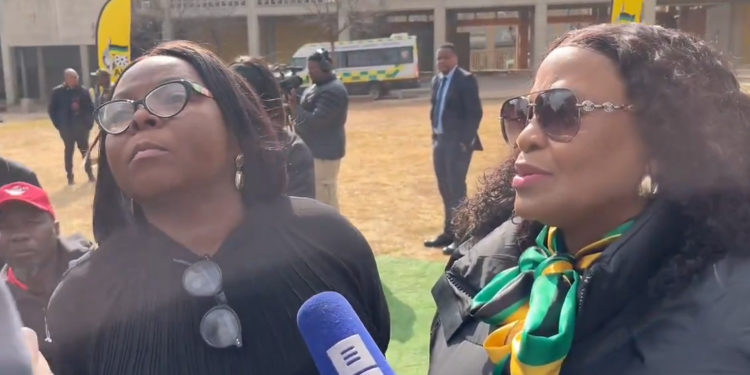ANC First Deputy Secretary-General Nomvula Mokonyane made waves this week by ejecting South African Communist Party (SACP) members from a closed-door election strategy session in Mpumalanga. The dramatic move underscores growing tensions within the ruling party’s alliance structures ahead of crucial elections.
“We cannot have another ‘Zuma situation’ where we strategize alongside future competitors,” Mokonyane declared, referencing former president Jacob Zuma’s formation of the rival MK Party while still an ANC member. Eyewitnesses report the veteran leader personally intervened when SACP representatives attempted to join discussions about the ANC’s 2024 campaign roadmap.
At a recent ANC election strategy meeting in Mpumalanga, Nomvula Mokonyane chased out SACP members.
Mokonyane, ANC’s 1st Deputy Secretary General, said the party cannot have another ‘Zuma’ situation where it sits with people it will be competing against. TCG pic.twitter.com/GdySk3zM58
— EWN Reporter (@ewnreporter) June 26, 2025
The incident exposes deepening fractures in the decades-old ANC-SACP-COSATU alliance. While the communist party has historically operated as the ANC’s governing partner, Mokonyane’s actions suggest the ruling party now views even traditional allies as potential threats to its electoral dominance.
Political analysts note the purge reflects ANC anxieties after recent by-election losses to breakaway factions. “This is about controlling the narrative and preventing strategy leaks,” said University of Johannesburg political analyst Professor Mcebisi Ndletyana. “The ANC fears being outmaneuvered by groups who understand its playbook.”
SACP spokesperson Alex Mashilo condemned the exclusion as “paranoid and counterproductive,” insisting the communist party remains committed to the alliance. However, Mokonyane’s hardline stance signals the ANC may increasingly go it alone as coalition politics reshape South Africa’s landscape.
The Mpumalanga confrontation comes as the ANC finalizes candidate lists amid fierce internal jostling. With the governing party polling below 50% nationally, Mokonyane’s actions reveal an organization prioritizing self-preservation over alliance unity in what may become South Africa’s most competitive elections since 1994.






















